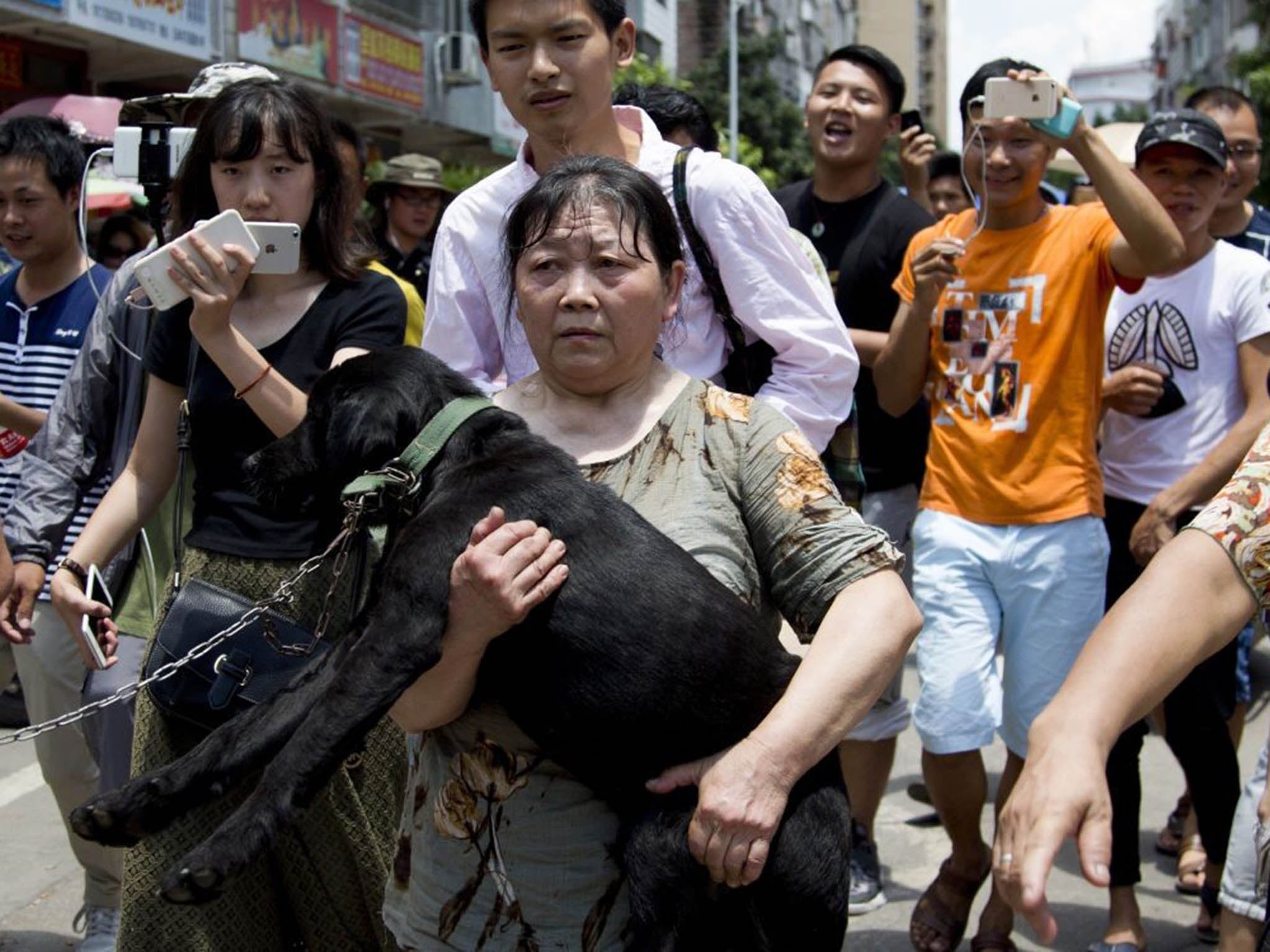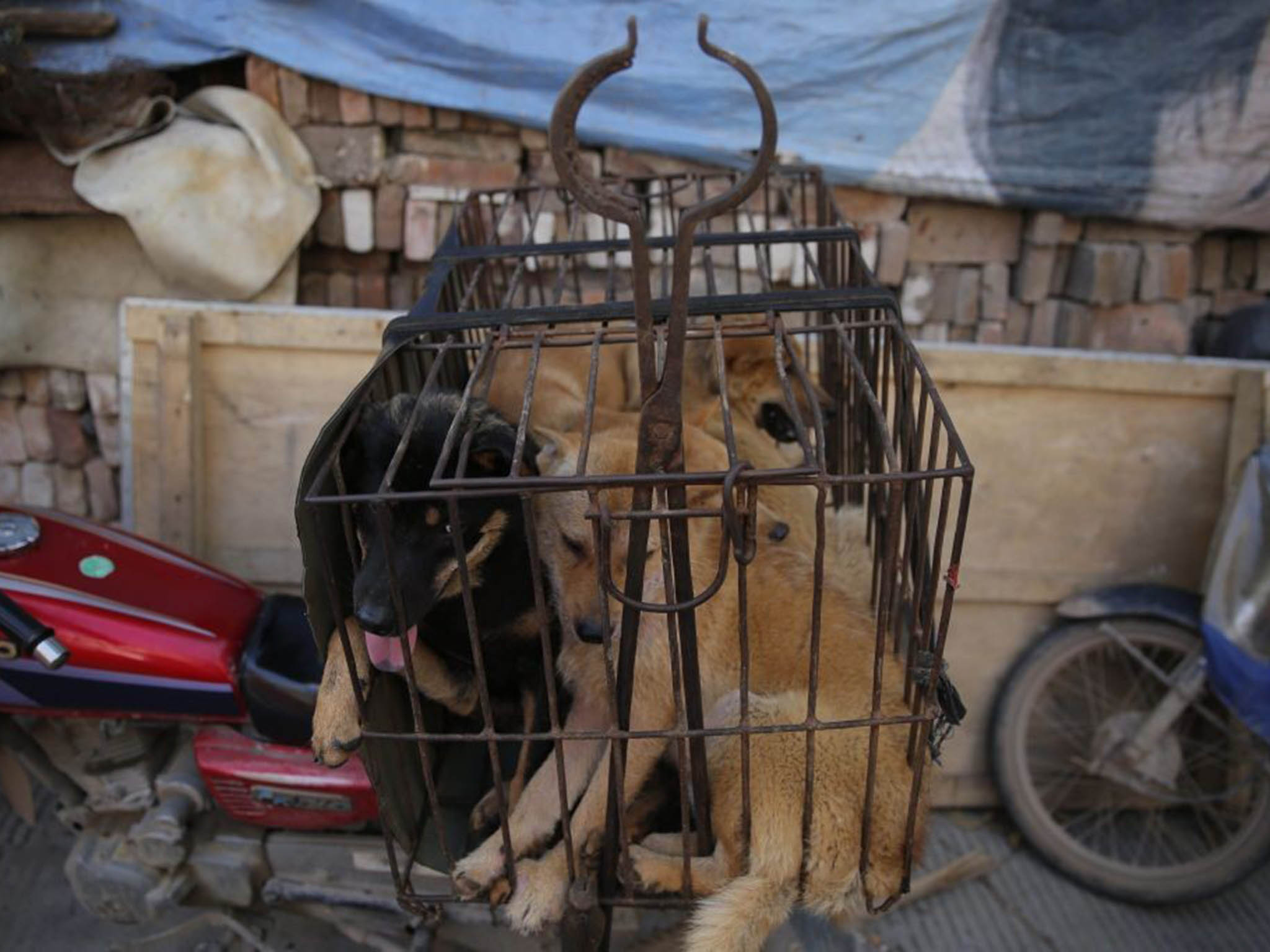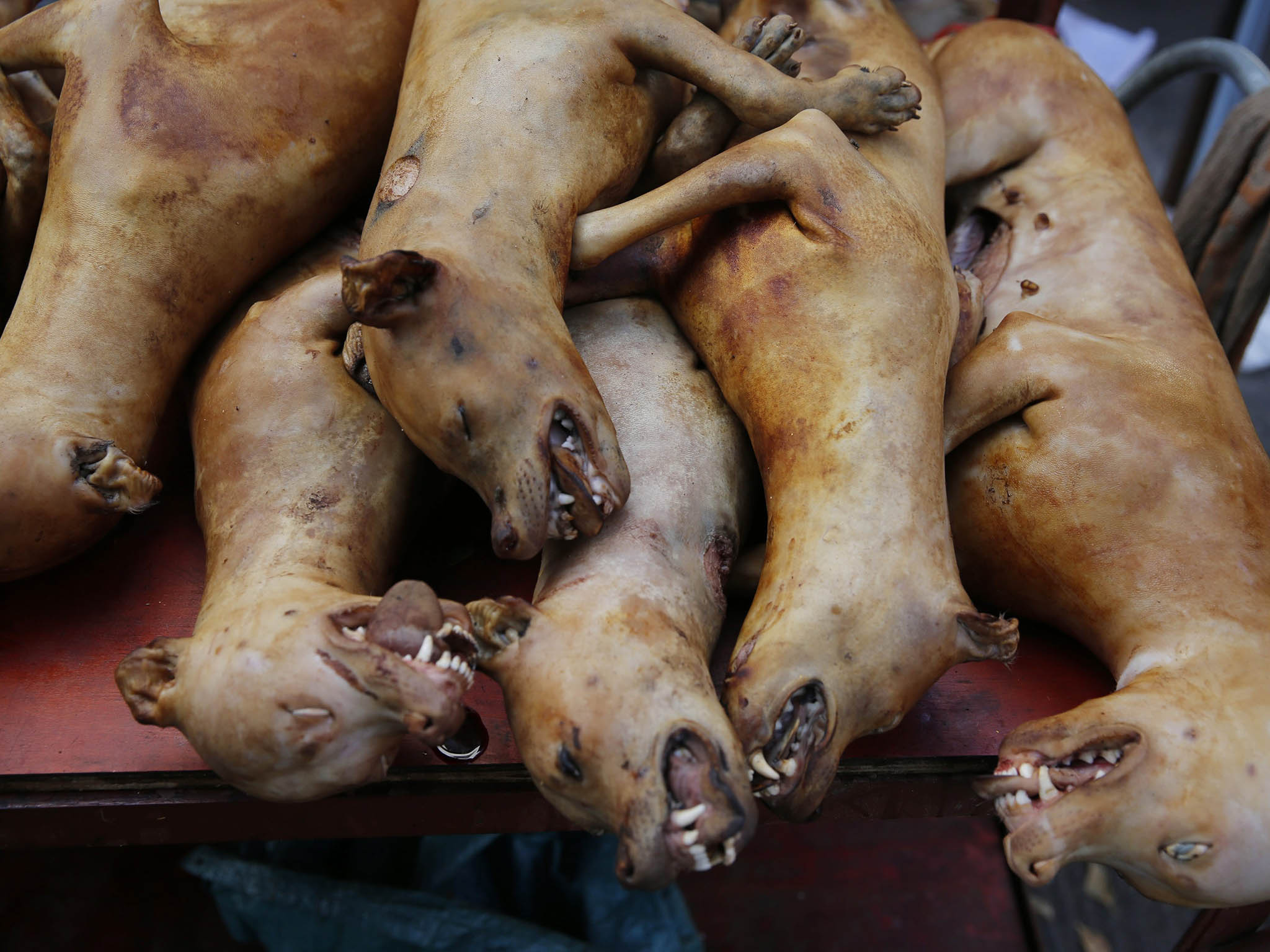Yulin Dog Meat Festival 2016: Animal activists save caged dogs from slaughter
Dogs bought from vendors to save them from being eaten in 'dog hot pot'
Animal rights activists and other dog lovers have disrupted China's most controversial annual "festival" - an event that celebrates the eating of dog meat.
Human Society International and others have been buying caged dogs to rescue them being slaughtered and eaten in dog hotpot dishes at the Yulin dog meat eating festival, which takes place every Summer Solstice.
An estimated 10,000 dogs are expected to be killed during the 10-day event, but the society said it had bought many from a local trader who was preparing to sell them to a slaughterhouse in Yulin. It wrote on its Facebook page that the dogs have been taken to a shelter.
Seperately animal rights activist Marc Ching claimed on Facebook that he had freed a total of 1,000 dogs ahead of the festival. Although locals complained activists were ruining the event and what they consider a local tradition, others took a different stance.
“We came to Yulin to tell people here dogs are our friends," Yang Yuhua, an animal rights activist from the central city of Chongqing, told CBS News. "They should not kill dogs in such a cruel way and many of the dogs they killed are pet dogs. '"Dogs are man's best, the most loyal friend. How could we eat our friends? You tell me.”
Yang spent over 1,000 yuan ($150) to buy two caged dogs at the market from the vendor.
Vendors said that they hoped for good business this year.
“They are a lot, a lot of people who like (eating dog meat). It's your habit, it's my habit,” said a vendor surnamed Zhou.
Despite the open sales of dog meat on the street, reportedly none could be found for sale at any restaurants, unlike previous years.
Ms Min, a Yulin resident, said: “Why won't they (let us openly celebrate the festival)? The city government came out and told (the vendors) not to let restaurant owners sell (dog meat). The city government is always (handling this issue) this way."

Xu Yongfen, a restaurant owner from eastern Anhui province, said he was disappointed in the city efforts to keep the festival low key.
“The people of Yulin can see so many dog lovers who like dogs, so they don't want to connect (anything) with dog. I personally like eating dog meat,” he said.
Dog meat eating has existed in China for more than 500 years, where it was once a delicacy, and has since dramatically declined, but the festival has only taken place since 2009.
The event has also attracted international condemnation from animal lovers, including record and television entrepreneur Simon Cowell.
The local government of Yulin, in south east China, has distanced itself from the controversial event, which it says it does not recognise and has received widespread opposition. More than 11 million people have signed a petition calling for the event to be cancelled.
The government is reported to hold meetings before every event to discuss counter measures, which include deploying police and authorities to inspect those who sell dogs.

Vendors of the dog meat say the animals are killed in a humane way, but those who oppose the event say dogs are caged with other animals and are either skinned alive or bludgeoned to death in public before being turned into meat and sold on the street.

Dogs, which were once banned under the communist control of Mao, are now legally allowed to be kept as pets once more, encouraging people to see them as companions instead of food. The consumption and trade of dog meat is legal in China, but dog theft, which is reported to fund much of the dog meat industry, is against the law.
Stop Yulin Forever, which started the petition, says the festival is a contributing factor in the killing of 10 million dogs in China for meat every year.
But it found that as more people are educated on the issue, numbers are declining. Polls as high as 64 per cent suggest the general Chinese community would agree to end the festival.
People for the Ethical Treatment of Animals (PETA) director Mimi Bekhechi said: “The Yulin dog meat festival is condemned internationally and by many people in China itself these days because, for most of us, the idea of killing, cooking and eating dogs – animals we know and love – is revolting."
AP contributed to this report
Join our commenting forum
Join thought-provoking conversations, follow other Independent readers and see their replies
Comments